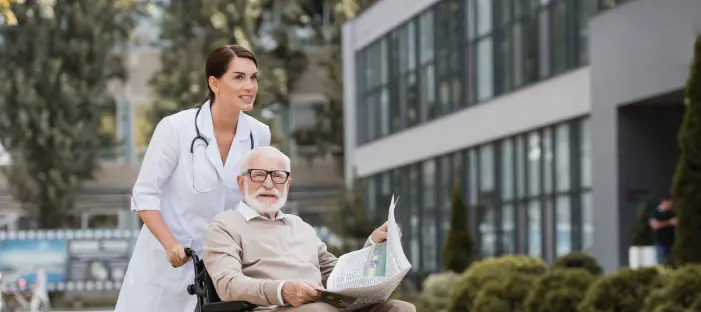INTRODUCTION
Vocational Certificate in Geriatric Care (VCGC)

The course curriculum is designed by Institute of Health and Nursing Australia (IHNA) & is delivered as a non-awarded course. Candidates will be equipped to provide support to people in aged care/ disability care health facilities and the community. They will be trained in factual, technical and procedural knowledge and skills required to function as a dependable care giver in multiple settings. Apart from classroom teaching, the training includes practice in a well-equipped simulation lab and practical experience placement in reputed residential care facilities. Our course is directed towards developing multi-skilled workers for the broad range of services supporting aged people and the disabled in residential and community settings.
-
Course Duration
600 hours
-
Mode of delivery
blended (online + Face to face)
-
Course Fee
INR: 25,000
-
Course content
- Introduction to Gerontology
- Basic human Anatomy and Physiology
- Age related changes in body systems and health promotion strategies
- Workplace health and safety
- Meeting the needs of elderly
- Common Health Problems in old age
- Legal and social support systems for elderly
- Emergency health care for elderly
- End of life care
- Basic language, computer, and soft skills